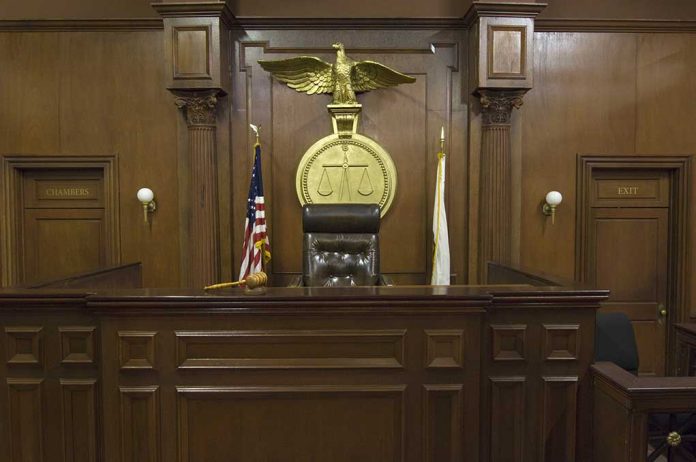
A federal judge’s ruling has ignited a firestorm in Washington, blocking key political appointees from accessing critical Treasury data and prompting calls for impeachment.
Key Takeaways
- Judge Paul Engelmayer issued a temporary injunction blocking political appointees from accessing Treasury Department data.
- The ruling restricts access to sensitive information, including for Treasury Secretary Scott Bessent.
- Rep. Eli Crane (R-Ariz.) is drafting articles of impeachment against Judge Engelmayer.
- The Trump administration argues the injunction violates the president’s constitutional authority.
- The lawsuit was initiated by 19 state attorneys general, led by New York AG Letitia James.
Judge’s Ruling Sparks Constitutional Controversy
In a move that has sent shockwaves through the political landscape, Judge Paul Engelmayer, an Obama appointee, has issued a temporary injunction blocking the Department of Government Efficiency (DOGE) from accessing Treasury Department data. This ruling effectively bars political appointees, including Treasury Secretary Scott Bessent, from accessing critical Treasury payment records, limiting such access to career civil servants within the Bureau of Fiscal Services.
The Trump administration has swiftly condemned the decision, arguing that it constitutes a serious violation of the president’s constitutional authority over the executive branch. This latest development has reignited debates over the separation of powers and the extent of judicial authority in matters of executive function.
William Upton: GOP CONGRESSMAN MOVES TO IMPEACH JUDGE Blocking DOGE Access to Govt Payment System.
“Representative Eli Crane (R-AZ) is poised to introduce articles of impeachment against U.S. District Court Judge Paul Engelmayer over the latter’s order blocking the Department of… pic.twitter.com/b1oEaEjd9b
— TheReal_AnTheFacts©™🇺🇸☦️🇬🇷 (@Real_AnTheFacts) February 11, 2025
Impeachment Efforts Underway
In response to what many conservatives view as judicial overreach, Rep. Eli Crane (R-Ariz.) has taken the extraordinary step of drafting articles of impeachment against Judge Engelmayer. Crane and his supporters contend that such rulings pose a direct threat to democracy by obstructing the executive branch’s ability to govern effectively.
The impeachment process for a federal judge is a complex and rarely successful endeavor. It involves an investigation by the House Judiciary Committee, followed by a majority vote in the House of Representatives. If successful, the matter then proceeds to a trial in the Senate, where a two-thirds majority is required for conviction and removal from office.
Historical Context and Legal Implications
The lawsuit that prompted Judge Engelmayer’s ruling was initiated by a coalition of 19 state attorneys general, spearheaded by New York Attorney General Letitia James. Their claim centers on an alleged violation of the Constitution’s separation of powers, a principle fundamental to the American system of governance.
Historically, the impeachment of federal judges has been an exceptionally rare occurrence. To date, only 15 federal judges have been impeached throughout U.S. history, with a mere eight actually removed from office. This statistic underscores both the gravity and the difficulty of successfully impeaching a federal judge.
Broader Implications for Executive Authority
The controversy surrounding Judge Engelmayer’s ruling extends beyond the immediate legal battle. It raises profound questions about the balance of power between the judiciary and the executive branch, particularly in matters of national security and fiscal policy. Critics of the ruling argue that it hampers the administration’s ability to make informed decisions on critical economic and security issues.
As this legal drama unfolds, it serves as a stark reminder of the ongoing tensions between different branches of government in the American political system. The outcome of this case, and any potential impeachment proceedings, could have far-reaching consequences for the interpretation of executive authority and the role of the judiciary in checking that power.
Sources:
The Memo: Trump, allies ramp up attacks on courts
Congressman Drafting Articles of Impeachment Against Lawless Anti-Trump Judge







